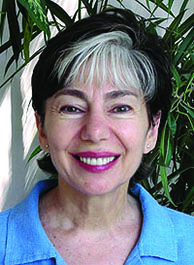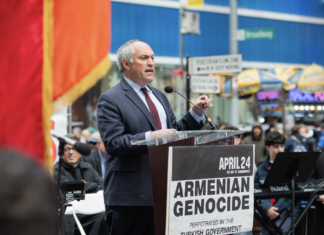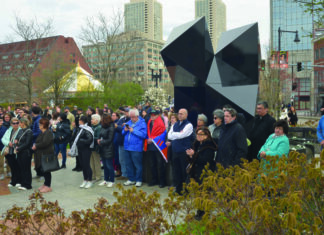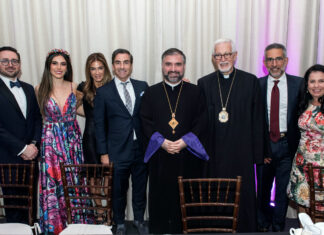By Aram Arkun
Mirror-Spectator Staff
DEDHAM, Mass. — Robin Casarjian, founder and director of the Lionheart Foundation and its National Emotional Literacy Project, is an expert on forgiveness — a topic that could have applications to the Armenian historical experience. However, her focus, and that of the nonprofit Lionheart, headquartered in Dedham, which she established in 1992, is on providing social emotional learning programs to incarcerated adults and youth.
Casarjian’s first book, Forgiveness: A Bold Choice for a Peaceful Heart, was published in 1992, and now is available in seven languages. Her expertise in this field and that of stress management led to appearances on PBS, ABC’s 20/20 and Oprah Winfrey.
Casarjian was an education major in college who went to graduate and post graduate school in the same field, but then worked three years as an educator with a woman in a non-traditional form of psychotherapy. She said, “I have always been interested, even when I was in college, in meditation and things that were self-reflective, and of a psycho-spiritual nature, not just psychological….It was a word that was just beginning to expand and I was drawn to it. I became a very disciplined meditator.”
She said that she learned through her private practice, and through teaching workshops at a personal growth center for cancer patients, that people’s emotional wellbeing could affect their physical outcome, so she began to look for literature on how to help people with feelings of anger and resentment. In the 1980s, she found, there was little written on this outside of a religious perspective.










